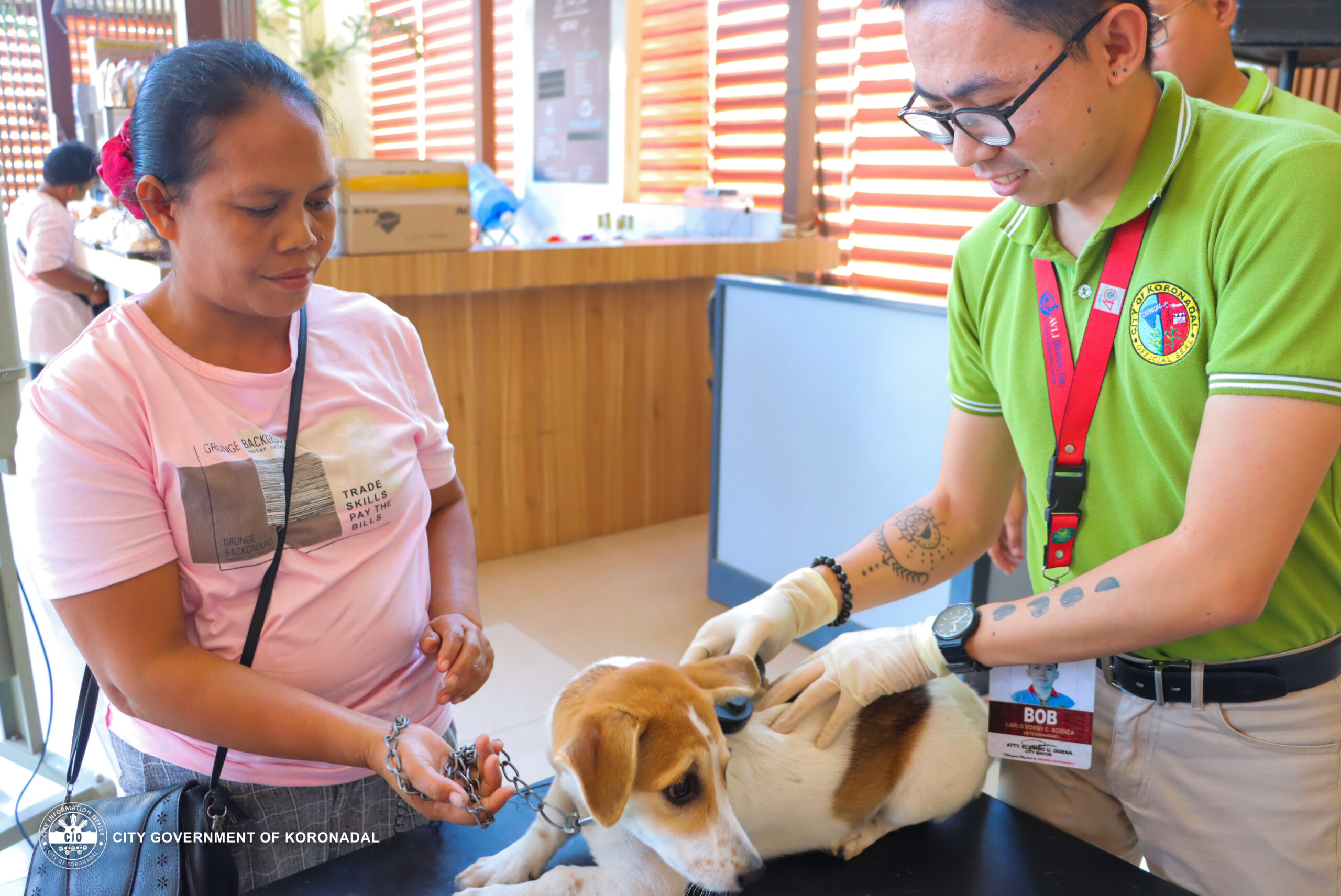SOCCSKSARGEN’s first pet microchipping underscores Koronadal’s anti-rabies month celebration

The first pet microchipping in Soccsksargen underscores Koronadal’s anti-rabies month celebration that vaccinated 306 pooches last March, administered by the City Veterinary Office (CityVet).
City Veterinarian Dr. Charlemagne S. Calo stated during his interview in the “Tingog sang Pagsanyog” FB live program that the initial implementation of the said program was considered highly successful wherein the recipients complimented the scheme.
Calo also explained that vaccination alone cannot cure the rabies problem and there is a need for dog registration to determine its total number in the entire city. He further said that it is just one of many approaches to regulate rabies in the community apart from anti-rabies vaccination, Information Education Campaign (IEC), Animal Birth Control (ABC) program where the CityVet traditionally carried out every year, and the establishment of animal care center which is currently being constructed.
The city veterinarian meanwhile emphasized that a microchip is not a Global Positioning System (GPS) device but a permanent digital identification when animals get into the custody of the government; if the pet gets stolen and displaced in times of disasters such as flood, fire, earthquakes, and celebrations creating loud noises that caused the animals to panic.
A microchip is also used for border control for Transboundary Animal Diseases (TADs) to determine if the pets are vaccinated. It is a worldwide use especially when traveling with pets abroad to a rabies-free country.
Generally, it promotes the responsibility and accountability of pet owners; to protect not only the animals but most importantly, the public health and safety.
Since it is just an inital implementation of the said platform, Calo envisions that it will be gradually implemented in the whole city in an appropriate time. He said that due to limited funding, not everyone will be able to benefit from microchipping.
Meanwhile, due to the scorching temperature, the veterinarian reminded that dogs and cats can also get heat stroke. To prevent such, avoid them exposed directly to sunlight, instead, keep them in a shady area and always provide clean water to have their access to drink.
While farm animals like horses, carabaos, cows, goats, and pigs are more heat resistant, however, they still need to be sheltered by a high roof to avoid respiratory problems because they can also collapse.